Related Research Articles

The Rio Group (G-Rio) was a permanent association of political consultation of Latin America and Caribbean countries, created in Rio de Janeiro, Brazil on December 18, 1986 with the purpose of creating a better political relationship among the countries. It was succeeded in 2011 by the Community of Latin American and Caribbean States.

Alfons Hug is a curator, critic and exhibition organizer.
The Maria Moors Cabot Prizes are the oldest international awards in the field of journalism. They are presented each fall by the Trustees of Columbia University to journalists in the Western hemisphere who are viewed as having made a significant contributions to upholding freedom of the press in the Americas and Inter-American understanding. Since 2003, the prize can be awarded to an organization instead of an individual.
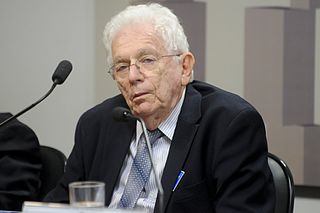
Simon Schwartzman is a Brazilian social scientist. He has published extensively, with many books, book chapters and academic articles in the areas of comparative politics, sociology of science, social policy, and education, with emphasis on Brazil and Latin America. He was the President of the Brazilian Institute for Geography and Statistics (IBGE) and is a retired professor from the Federal University of Minas Gerais. He is member of the Brazilian Academy of Sciences, holder of the Grand Cross of the Brazilian Order of Scientific Merit (1996). He is currently associate researcher at the Institute for Studies in Economic Policy Instituto de Estudos de Política Econômica / Casa das Garças - Rio de Janeiro.

James Bettner Brooke is an American journalist who currently serves as editor in chief of the Ukraine Business News, an English-language subscription news site based in Kyiv, Ukraine. Previously, he was editor in chief of the English-language Khmer Times newspaper, in Cambodia. From 2010 to 2014, he was the Russia/former Soviet Union Bureau Chief for Voice of America, based in Moscow. For VOA, he wrote Russia Watch, a weekly blog. Previously, he worked as Moscow Bureau Chief for Bloomberg. Before Bloomberg, he reported for 24 years for The New York Times, largely overseas in countries such as Japan, South Korea, Ivory Coast and Brazil.
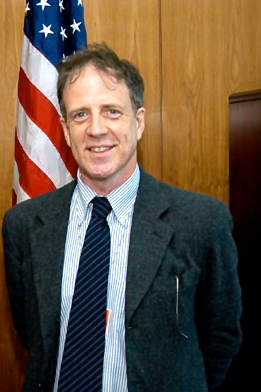
William Lawrence Rohter, Jr., known as Larry Rohter, is an American journalist who was a South American bureau chief for The New York Times from 1999 to 2007. Previously, he was Caribbean and Latin American correspondent of the Times from 1994 to 1999. He now writes about cultural topics.

Hélio Oiticica was a Brazilian visual artist, sculptor, painter, performance artist, and theorist best known for his participation in the Neo-Concrete Movement, for his innovative use of color, and for what he later termed "environmental art," which included Parangolés and Penetrables, like the famous Tropicália. Oiticica was also a filmmaker and writer.

John Moors Cabot was an American diplomat and U.S. Ambassador to five nations during the Truman, Eisenhower, and Kennedy administrations. He also served as Assistant Secretary of State for Inter-American Affairs. He warned repeatedly of the dangers of Soviet communism toward American interests in Latin America.

CAF - Development Bank of Latin America and the Caribbean, formerly the Andean Development Corporation, is a Caracas based development bank whose mission is to promote sustainable development and regional integration in Latin America and the Caribbean, through the financing of projects of the public and private sectors, the provision of technical cooperation and other specialized services.

Prescottia is a genus of flowering plants from the orchid family, Orchidaceae. It is widespread across much of Latin America and the West Indies, with one species (P. oligantha) extending into Florida.
Alfredo Da Silva was a painter, graphic artist, and photographer, known for his abstract expressionism. He came to international prominence in 1959 and remained so until his death in 2020.

Norman Gall is an American reporter and commentator on Latin American affairs. He has contributed to such periodicals as Forbes, The Economist, and The Wall Street Journal, and since 1987 has been the executive director of the Fernand Braudel Institute of World Economics, based in São Paulo, Brazil.
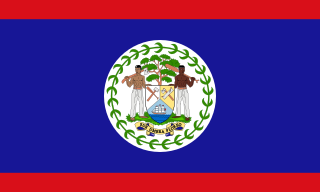
Belize has competed at every edition of the Pan American Games since the fifth edition of the multi-sport event in 1967. Belize did not compete at the first and only Pan American Winter Games in 1990. Belize's only two medals were won in softball.
Juan Forero is the South America bureau chief for The Wall Street Journal. He was previously The Washington Post's correspondent for Colombia and Venezuela and The New York Times' Bogotá bureau chief.
The integration of Latin America has a history going back to Spanish American and Brazilian independence, when there was discussion of creating a regional state or confederation of Latin American nations to protect the area's newly won autonomy. After several projects failed, the issue was not taken up again until the late 19th century, but now centered on the issue of international trade and with a sense of Pan-Americanism, owing to the United States of America taking a leading role in the project. The idea of granting these organizations a primarily political purpose did not become prominent again until the post-World War II period, which saw both the start of the Cold War and a climate of international cooperation that led to the creation of institutions such as the United Nations. It would not be until the mid-20th century that uniquely Latin American organizations were created.
Alan Riding is a British author and journalist. He was a long-time foreign correspondent for The New York Times, most recently as the paper's European Cultural Correspondent based in Paris. His latest book is And The Show Went On: Cultural Life in Nazi-Occupied Paris.
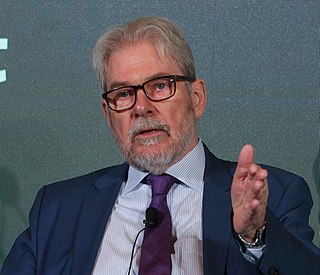
Michael Reid is an English journalist, writer and commentator on Latin American and Iberian affairs.
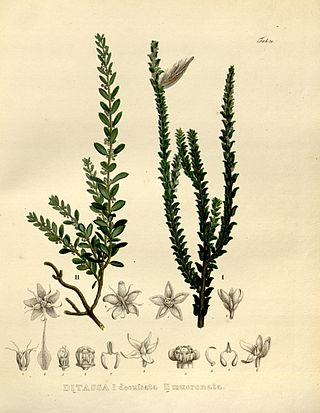
Ditassa is a genus of plant in the family Apocynaceae, first described as a genus in 1810. It is native to South America.
Miguel Ángel Rojas is a conceptual art and filmmaker. His work includes drawing, painting, photography, installations and video and is often related to contexts expanding on issues of sexuality, urban culture, systems of violence, substance abuse, and economic inequalities. He has been working as a photographer, painter and architect since the 1970s.
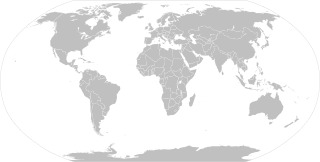
One city initially submitted a bid to host the 1959 Pan American Games that was recognized by the Pan American Sports Organization (PASO), along with three cities that withdrew their bids. On March 11, 1955, at the IV Pan American Congress in Mexico City, PASO selected Cleveland unanimously to host the III Pan American Games.
References
- ↑ Infobrazil - The Editors - Simon Romero
- ↑ West Las Vegas Class of 1988
- ↑ "Alibi Settles into New Ownership". alibi.com. Retrieved 2023-05-21.
- ↑ Knight Center Interview with Simon Romero
- ↑ Slate Magazine, February 8, 2008
- ↑ IFEX International Freedom of Expression Exchange [ permanent dead link ]
- ↑ "Advisory Committee".
- ↑ The Maria Moors Cabot Prize Recipients of 2015 Archived 2016-01-16 at the Wayback Machine
- ↑ Overseas Press Club of America Awards Recipients - 2014